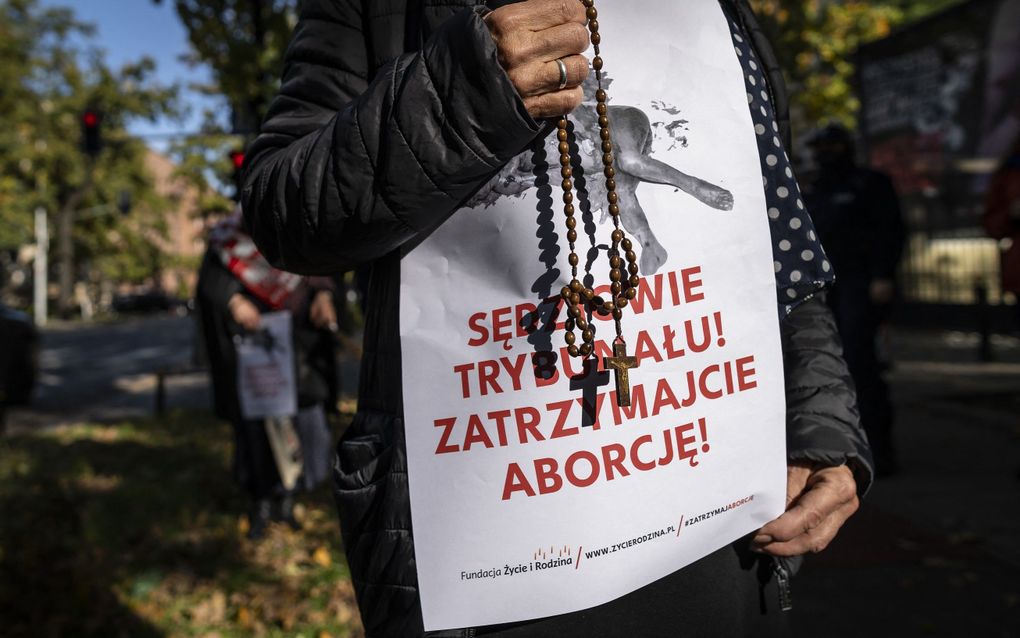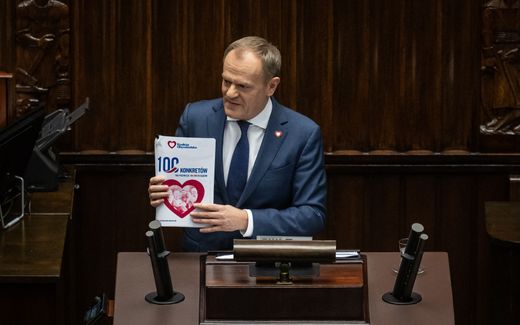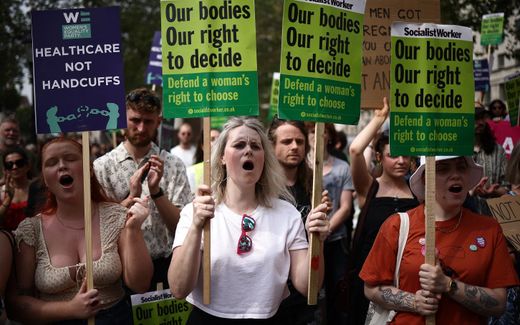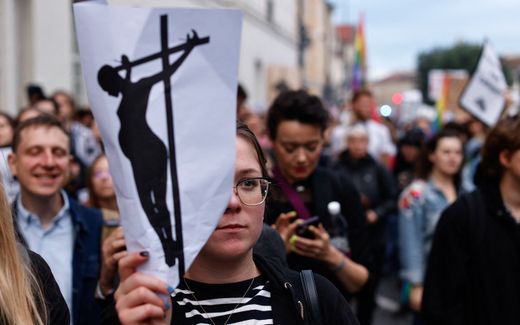New Polish government gets headwinds in liberalising abortion

Pro-life demonstrators praying in Poland. Photo AFP, Wojtek Radwanski
Central Europe
The new Polish government is determined to decriminalise abortion and dismantle the strict laws on termination of pregnancy that were established by the previous coalition. However, it is not as easy as expected and promised.
In 2020, Poland’s government made headlines when it passed a near-complete ban on abortion. According to a previous Politico report, the decision proved to be final for the right-wing, Law and Justice party (PIS). The nation’s top court ruled that it would only allow abortions in cases of rape or endangerment to the mother. In response, activists on both sides of the abortion debate took their slogans to the streets. Some held up signs of aborted foetuses while others waved coat hangers as a warning against back-street abortions.
Now that it is 2024, the law is coming under criticism by the nation’s opposition party, Civic Coalition which has been run by the current prime minister, Donald Tusk. In another Politico report, Civic Coalition and other left-leaning parties such as the Third Way want to see the 2020 law overturned.
They have created new regulations that are still up for parliamentary review. Some of these involve decriminalising abortion and allowing the practice up to 12 weeks during a pregnancy. Those in Tusk’s party believe that pushing for decriminalisation may be the only path forward until the upcoming elections.
“It could be the first step and we could go back to the debate on liberalisation and making abortion up until the 12th week legal after the presidential election,” Equality Minister Katarzyna Kotula said in the Politico report.
Slogans
However, the nation’s Catholic church still stands by its opposition and believes that the new proposal is being candy-coated while “bringing death under euphemistic-sounding slogans.”
“A person does not have the right to decide about the life or death of another person. Taking someone’s life can never be called progress or modernity,” Leszek Gęsiak said, who is a spokesperson of the Polish Episcopate.
While the act of abortion may still be up for debate, parliament will soon decide if the “day after pill” will be available without a prescription. The medication which contains ulipristal acetate became available as a prescription drug in 2017 after PIS legalised its use.
Overemphasis
For Poland’s Christians who oppose abortion, joining a pro-life rally or group has not been the solution to the ongoing problem. Mateusz Hedzielski, a Millennial who lives near the Polish city of Poznan, said that he stopped attending anti-abortion rallies due to their overemphasis in showing aborted foetuses. He believes that the movement should move toward personal responsibility rather than showing murdered babies. Hedzielski also emphasised that the abortion debate should not stop at “don’t do it” but start with “this is my responsibility.”
He also said that anti-abortion activists in his country resort to judging those harshly when a woman goes through with having an abortion abroad. Such a decision is viewed as only the mother’s fault. However, according to Hedzielski, the man in the relationship is just as responsible. Christians should also step into such situations by showing support and compassion, regardless of a termination or not, he said.
“I do not want to see others how I see them. I want to spread love, just like what God taught me,” Hedzielski said.
When it comes to the nation’s political debate on abortion, Hedzielski said that his faith and trust remains in God alone, regardless of who gets elected.
“The problem with Christians is that they trust politicians. There is no party that is about doing what God said. Rather, they are doing the opposite,” he said.
Related Articles









